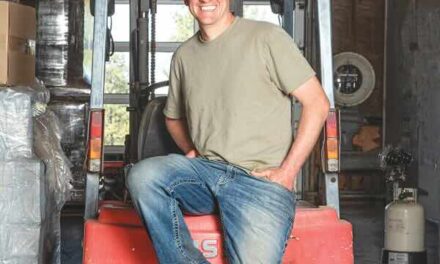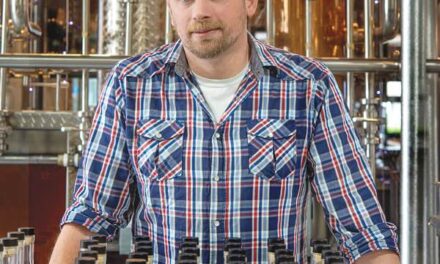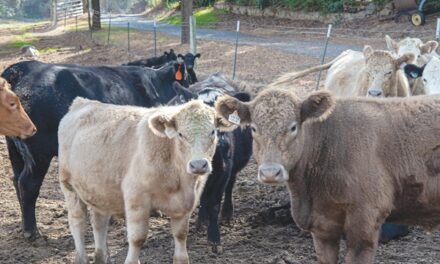Deep in the Roots
Small farms flourish as community-supported agriculture makes resurgence
By Tessa Marguerite Outland
July 2020
As the community turns to local food sources instead of the global chain, is it possible Sacramento could dig even deeper into its roots as the farm-to-fork capital?
Small farms across the region that have been impacted by the pandemic are seeing some opportunities. To help support America’s farmers and maintain the integrity of our nation’s food supply chain, the U.S. Department of Agriculture implemented the Coronavirus Food Assistance Program. Announced in mid-April, this $19 billion immediate relief program provides critical assistance to farmers.
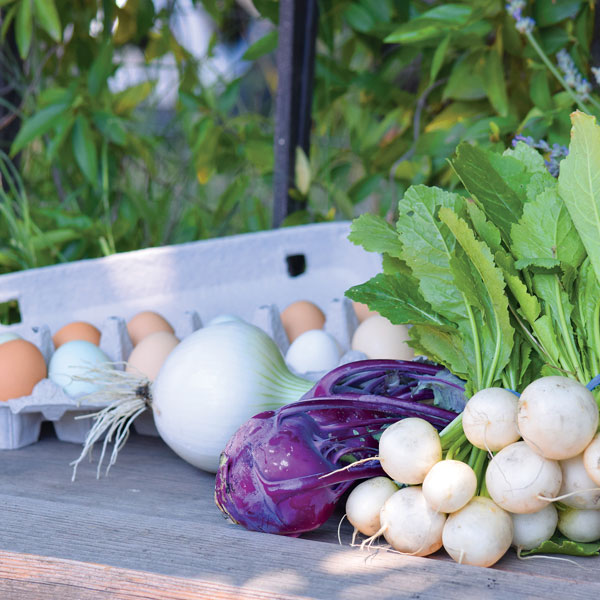
The program receives funding from the Coronavirus Aid, Relief, and Economic Security Act, Families First Coronavirus Response Act and other USDA existing authorities. CFAP includes two major elements: direct support to farmers and ranchers, and USDA purchase and distribution. With $16 billion in direct support based on actual losses for agricultural producers, the program assists farms that have experienced lost demand and short-term oversupply caused by COVID-19 for the 2020 marketing year.
Produce Express, a wholesale distributor to the greater Sacramento Valley, experienced that lost demand and oversupply all at once. General manager and part owner Jim Boyce reports that when the pandemic hit, sales dropped 65 to 70 percent. “The night the Kings quit playing our business fell apart,” he says. “It left us with a ton of inventory that nobody wanted.”
While grocery stores were selling out of milk, eggs and meat products, restaurants and the farmers who grew their ingredients were shuttered. Since Produce Express deals primarily with restaurants and sporting arenas, the impact could have been devastating.
Through CFAP, the USDA partnered with regional and local distributors in the Farmers to Families Food Box program. To support those who were significantly impacted by the closure of restaurants, hotels and other food service businesses, the USDA purchased $3 billion nationally in fresh produce, dairy and meat for distribution to food banks and other nonprofit organizations.
Produce Express was awarded a grant from Farmers to Families Food Box for 3,080 boxes each day. It partnered with CDS Distributing Inc. to send boxes of apples, oranges, potatoes and Romaine lettuce to food banks in Yolo County, San Jose and Concord, as well as some small churches. Produce Express also designed its own program with wholesale-priced Consumer Boxes containing ingredients for fresh meals.
With funding from the same Farmers to Families Food Box program, Capay Organic worked with Sacramento City Councilmember Eric Guerra to connect with Asian Resources Inc., La Familia Counseling Center and Sacramento Food Bank & Family Services to feed more than 10,000 families weekly.
Nationally, the packaged boxes included $461 million in fresh fruits and vegetables, $317 million in a variety of dairy products, $258 million in meat products and $175 million in a combination box of fresh produce, dairy and meat. The program was approved to run for six weeks beginning May 15, but the USDA’s Agricultural Marketing Service reports it may be extended up to $3 billion nationwide depending on its success and remaining funds.
COMMUNITY-SUPPORTED AGRICULTURE
While those selling to restaurants and processors may be struggling to find solutions, direct consumer farms are discovering a resurgence of community-supported agriculture, an idea that sprouted in North America in the 1980s. This food production and distribution system connects farmers and consumers directly through the purchase of a “share” of a farm’s harvest. The family or individual then receives a portion of the crops as they are harvested.
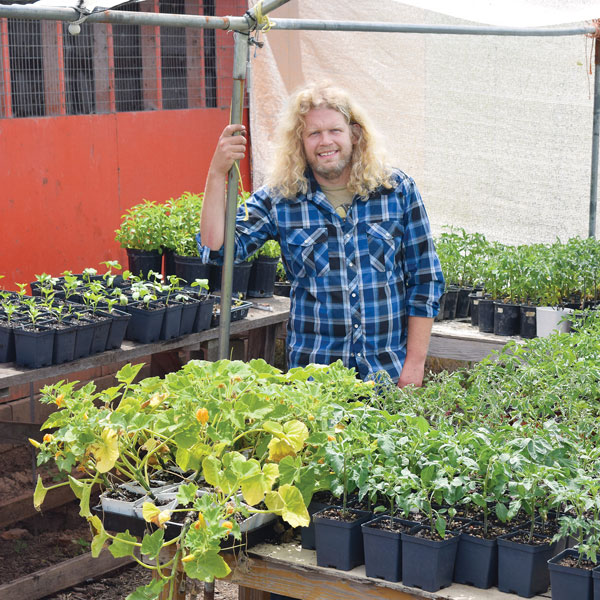
The ReFarmery is a small farm in Rio Linda with pasture-raised poultry, eggs, fruits, flowers and about 120 varieties of specialty vegetables. Since The ReFarmery’s market is primarily its CSA members and farmers markets, Jon Kupkowski reports his farm is thriving as consumers become more interested in where their food is coming from and who is growing it. “When you’re using direct consumer farms like this one, there’s no middle man,” says Kupkowski, owner and farmer at The ReFarmery. “There’s no shipping, distribution, processing … it’s a secure and local food source.”
In May, The ReFarmery’s CSA program was up 300 percent from the previous year. At the Natomas Farmers Market, Kupkowski says he sold out by the end of the morning, along with almost every other farm stand at the market. “It’s a strange time and I’d prefer it wasn’t here, but I’m staying busy,” Kupkowski says. The ReFarmery did not apply for any USDA or other assistance as none was necessary.
During normal operations, produce from West Sacramento Urban Farm is sold at farm stands and to local restaurants and school districts, including Washington Unified, Robla, Natomas Unified and Davis Joint Unified. Leading the charge at school districts is Fiery Ginger Farm. But with the sudden closure and shift of these expected markets, Sara Bernal, Urban Farm program manager, says they have been compelled to unearth creative solutions to fulfill growing farm and community needs.
“Now farmers are trying to launch CSA programs to provide produce without having a farm stand,” Bernal says.
Before the pandemic, Bernal was in the process of creating a new project called the Homegrown Mobile Market. A refrigerated farmer’s truck would transport locally sourced produce with regular stops around West Sacramento, especially in low-income “food deserts.” Bernal expected the Homegrown Mobile Market to be operating by May, but it has been delayed due to current non-essential trade restrictions with Canada, where the truck is being manufactured. She is hopeful that the Homegrown Mobile Market could be in operation as early as July.
The West Sacramento Urban Farm is part of the California Farm Academy’s Farm Business Incubator, which is under the nonprofit Center for Land-Based Learning. The center has not applied for COVID-19-related grants, according to Sri Sethuratnam, director of the center’s California Farm Academy, adding that many individual farmers in the program are finding it difficult to apply for them. “It’s a lot of paperwork and the grants are more suited to larger scale operations,” Sethuratnam says. “There is a challenge for new farmers and smaller farms.” Sethuratnam added that while the restaurant market plunged, the demand for CSA boxes dramatically increased.
If the practice of individuals partnering with direct consumer farms continues, Sacramento could see a more permanent change even after the pandemic. Small local farms that are thriving are a result of community-supported agriculture within a secure and local food source.
Tessa Marguerite Outland can be reached at tessa.m.outland@gmail.com. Follow us on Facebook, Twitter and Instagram: @insidesacramento.





